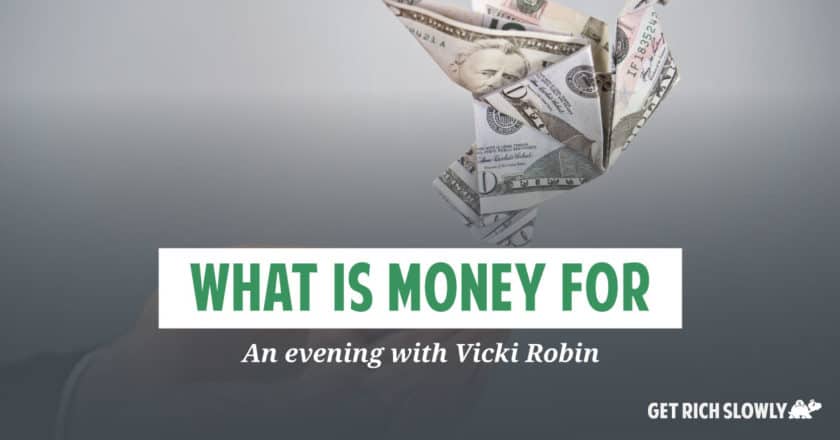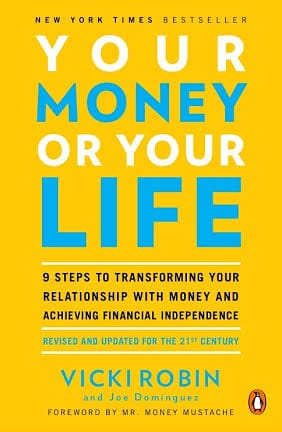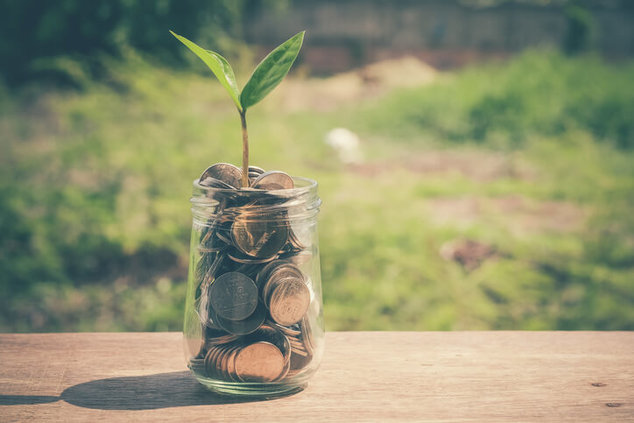How to use a commitment contract to change your habits
This article was written by Pop at Pop Economics, a great new blog about investing, personal finance, economics, and more.
It's now 9pm on August 30th. I'll finish this article by 11:59pm on August 31. I know this, because if I don't, I'll lose $1,000.
Call it an incentive. I've written about behavioral economics over at Pop Economics for three-quarters of a year now. There are an infinite number of subjects to cover, but they all boil down to the same idea: People respond to carrots and sticks.
How to Avoid Sneaky Airline Fees
Last Friday I arrived home from New York City after a week of Broadway, museums, twinkling holiday lights, and more cannoli than any one person should consume. (Thankfully, I spent plenty of time walking them off!) Visiting the city in December was on my life list of things I wanted to do, and it didn't disappoint.
Of course, New York City isn't inexpensive. But my husband and I stayed with a friend, which meant we didn't have to pay for a hotel room, and we lucked into a few deals. For example, our friend used his corporate discount to get reduced-price tickets to The Metropolitan Museum of Art, and we scored $25 tickets for front-row seats to Wicked through a lottery drawing held two hours before the show. I'd also prepared myself to expect higher prices so that I could relax a little and enjoy the first big vacation we've taken in almost three years. I can say in all honesty that every expense was worth it — especially the cannoli.
But want to know what travel expenses are not worth it? The new fees airlines charge for everything imaginable! Need to check two bags? That'll be $60. Want a pillow? That's $7, and we only take credit cards. Continue reading...
99 DIY Christmas gifts: Homemade gift ideas to start right now

Thoughtful gift-giving takes time, especially if you are going to make the gift yourself. So here is a list for you, in plenty of time, so you can get started planning budget Christmas gifts this year.
Food Gifts with Wow-Factor

For the most part, food gifts can be made individually or in batches if you want to give something small to a large number of people. Obviously, with food items, you should wait until much closer to Christmas to make them, but it's a great idea to start looking for the other items you'll need for these gifts like mason jars, baskets, and ribbon so you can buy them on sale.
Of course, if you want to get some practice in so you can perfect your gifts, it's much better to start now anyway! Many of these gifts are great for other occasions too, by the way. Recipes for most of the food presents can be found on Pinterest and elsewhere, but here are some ideas to get your taste buds thinking.
Is a Reverse Mortgage Right for You?
Whether through recent news articles or over the water cooler, you've probably heard something about reverse mortgages. But if you (or a loved one) is considering this type of loan, don't base your opinion on hearsay. For such a major financial decision, it's worth getting the facts about reverse mortgages. This type of mortgage can actually be a valuable option for people in the right circumstances and who understand the terms of the deal.
Reverse mortgages convert home-equity into cash

The older you are and the more valuable your home, the lower the interest rate you can get in a reverse mortgage — meaning you can borrow more money. Continue reading...
The power of compounding: How your wealth snowball grows with time

So much of financial success involves good habits practiced over long periods of time.
Yes, you can still have a positive impact on your financial future if you're starting late in life -- but if you're 59 years old and just beginning to think about financial freedom, you have a lot of work to do.
But if you're 19, you have an extra forty years to set yourself up for financial success. This extra time makes a ginormous difference!
A Month of Travel for Less than a Month at Home
It was always my dream to be paid to travel. I thought I'd write guidebooks or be a tour guide. A few years ago, my wanderlust was acting up again, so I crunched some numbers, adding up the cost of living where I was (New York) versus traveling for month. With some careful planning, I spent a month in Paris and ended up with more money than when I left.
The cost of staying in one place
I'm sure most of us know our monthly expenditures. Rent, utilities, Internet, cable, Netflix, gym membership, gas, cellphone, and the list goes on. Granted, all of us have different interests and different monthly expenditures, but there's usually a basic bottom line for all of us. I thought if I could zero that out, then a month away would become more of a reality. Living in New York made it easy to sublet my apartment for a one-month stint. I raised my rent price a couple hundred dollars to cover my utilities, Internet, and cable. I put my Netflix and gym memberships on hold, and at the time, pay-as-you-go was all the rage so my cellphone had no contract. My car stayed parked out back and my gas expense dropped to zero. My monthly expenses dropped from around $1,500 to nothing at all.
Accommodations
I knew I wanted to be centrally located in Paris, but didn't need much more. On Craigslist I found a lot of graduate and doctorate students who had to travel for their dissertations. They were looking to rent out their apartments for cheap, real cheap, just so their rent wouldn't be a total loss. Not only that, most everyone I talked to was willing to negotiate. I ended up with a small room on the top floor of the building (the former maid's room) for €150 a month, less than a fourth of my rent back home. The student was traveling to Africa and was happy to have someone to watch his cat. (If you want to go even cheaper than that, you can try house-sitting. Friends of mine have been paid to stay in beach houses in the Caribbean or mountain homes in Montana. I have yet to do this myself, so I'm curious if any of you have stories.)
Food, and becoming the invited guest
When I travel, everything is new. Yes, five-star restaurants are appealing, but street food gives me the most pleasure. Some of my best meals had been Nutella crepes and crusty baguettes, often for less than €3. At home, not only was I prone to $8 burritos when I didn't have a chance to make something after work, but I'd also have a small dinner party for friends at least once a month. This often meant having either wine or liquor and cooking for five, a lot pricier than cooking for one.
When abroad, I'm usually the one who's asked to dinner. Through volunteer work, attending free book readings, or helping someone carry groceries down the street, I found myself being the invited guest to at least one dinner party a week, and it was a great way to try some of the traditional French dishes, learn the language, and interact with people. Put yourself out there, learn some niceties, and you might be surprised how willing people are to want to share their culture and open their doors.
Banker to the Poor: Book Review and Summary
When J.D. announced that this week would be Book Week at GRS, I was excited about a set deadline for tackling a book from my ever-growing reading list. Since micro-finance and micro-credit have been of interest to me for the past four years or so, I decided to read Banker to the Poor: Micro-Lending and The Battle Against World Poverty by Muhammad Yunus. (J.D. reviewed the same book in 2007. Read his take here.)
Nobel Peace Prize winner Yunus is the founder of Grameen Bank, an organization that helps the world's poorest, especially women, escape poverty through micro-loans, which are small loans given to start a business.
Banker to the Poor chronicles Yunus' journey from a "bird's-eye-view economist, teaching elegant theories in a classroom, to a worm's-eye-view practitioner" and the creation of Grameen, a bank owned by its poor borrowers that boasts a loan recovery rate of 97.29%.
How to build community relationships
We spend a lot of time talking about green here on Get Rich Slowly. But let's direct our attention for a couple minutes to another color: blue.
I first read about the Blue Zones in a magazine a few years ago. These blue zones were identified after researching some of the longest living people on the planet. Although nine characteristics were associated with these blue zones, several are lumped into the social category. Having a healthy social life can extend your life? Who knew?
Maybe you don't care about living until you are 100, but do you think that your social network could help improve your finances or decrease your stress level? I think it can. And so does the Blue Zones organization, but more on that later.
What is money for? An evening with Vicki Robin


As an adult, my heroes are more mundane. They're the people who make personal finance accessible to average people. Long-time readers know that billionaire investor Warren Buffett is one of my heroes. So too is Dave Ramsey, who has helped countless people -- including me -- get out of debt.
But perhaps my biggest hero is an unassuming 73-year-old woman in cat-eye glasses who lives on Whidbey Island in Washington's Puget Sound.
How to Hire a Financial Planner (or Not)

Millions rely on financial professionals to do their investing for them but not everyone knows how to hire a financial planner the right way -- or when to say no to one.
On the surface, the rationale for hiring a financial planner or advisor seems valid. People feel intimidated by the whole investing thing. It seems like a jungle out there and, to boot, most people know someone who lost it all with bad investments. Others believe they just don't have enough time to learn about investing or to maintain their investments on an ongoing basis.